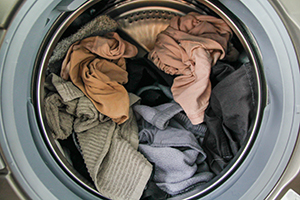 The laundry detergent industry is continuing its shift toward sustainability, with innovations such as fiber-based detergent bricks and waterless, concentrated formulations reducing environmental impact while maintaining high cleaning efficacy.
The laundry detergent industry is continuing its shift toward sustainability, with innovations such as fiber-based detergent bricks and waterless, concentrated formulations reducing environmental impact while maintaining high cleaning efficacy.
Fiber-Based Detergent Bricks
One of the most notable advancements is fiber detergent bricks, as seen in Tide Evo by Procter & Gamble. Unlike traditional liquid or powder detergents, these solid detergent bricks eliminate the need for filler ingredients, reducing water usage and packaging waste. Tide Evo, for instance, uses instant activation technology, meaning the detergent dissolves quickly in water. This offers convenience and efficiency while also reducing energy consumption when used in cold water washes.
These bricks typically incorporate:
Surfactants: Essential for removing dirt and stains, surfactants such as fatty alcohol sulfates and alkyl polyglucosides (APGs) are commonly used. APGs, derived from renewable raw materials, offer an eco-friendly alternative to petrochemical-based surfactants.
Enzymes: Enzymes such as protease, amylase, and lipase are used for
breaking down proteins, starches, and fats in stains, enhancing cleaning efficiency in lower temperatures.
Builders: Phosphate-free alternatives like zeolites and citrates help
soften water, boosting detergent performance without harming aquatic
ecosystems.
Discover ULTRUS, software to help organizations succeed through safe and sustainable performance. Learn more here!
Waterless and Concentrated Formulations
Waterless formulations, including detergent sheets, powders, and ultra-concentrates, aim to minimize transportation emissions and plastic waste. These products eliminate or significantly reduce water content, which makes them lighter, easier to transport, and more
compact than conventional liquid detergents.
Key ingredients include:
Bio-based surfactants: Many waterless detergents now use bio-derived non-ionic and anionic surfactants, reducing reliance on petroleum-based raw materials.
Carboxymethyl cellulose (CMC): This plant-based polymer prevents dirt from re-depositing on clothes during washing, improving performance in low-water formulations.
Alcohols and solvents: Ethanol and glycerin, often derived from bio-based sources such as sugar cane and vegetable oils, help dissolve stains effectively in concentrated and waterless formulations.
Grow brand reputation through a more sustainable product portfolio. Learn more here!
Sustainability and Industry Impact
By shifting towards fiber bricks and waterless formulas, detergent manufacturers reduce packaging waste, lower carbon emissions from transportation, and decrease water usage. These products align with growing consumer demand for eco-friendly, plastic-free, and
biodegradable cleaning solutions. Additionally, advancements in biotechnology-based surfactants and enzymes suggest that even more sustainable formulations will emerge soon.
The views, opinions and technical analyses presented here are those of the author or advertiser, and are not necessarily those of ULProspector.com or UL Solutions. The appearance of this content in the UL Prospector Knowledge Center does not constitute an endorsement by UL Solutions or its affiliates.
All content is subject to copyright and may not be reproduced without prior authorization from UL Solutions or the content author.
The content has been made available for informational and educational purposes only. While the editors of this site may verify the accuracy of its content from time to time, we assume no responsibility for errors made by the author, editorial staff or any other contributor.
UL Solutions does not make any representations or warranties with respect to the accuracy, applicability, fitness or completeness of the content. UL Solutions does not warrant the performance, effectiveness or applicability of sites listed or linked to in any content.
